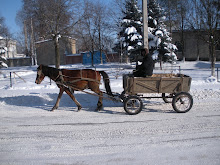The Preparation
 My neighbor, Zina, came to use our electric meat grinder the day before Memorial Easter. While I nibbled on a cabbage salad and she worked on her three-meat meatballs, she recalled her husband’s predictable words in the days leading up to a major holiday.
My neighbor, Zina, came to use our electric meat grinder the day before Memorial Easter. While I nibbled on a cabbage salad and she worked on her three-meat meatballs, she recalled her husband’s predictable words in the days leading up to a major holiday.
 My neighbor, Zina, came to use our electric meat grinder the day before Memorial Easter. While I nibbled on a cabbage salad and she worked on her three-meat meatballs, she recalled her husband’s predictable words in the days leading up to a major holiday.
My neighbor, Zina, came to use our electric meat grinder the day before Memorial Easter. While I nibbled on a cabbage salad and she worked on her three-meat meatballs, she recalled her husband’s predictable words in the days leading up to a major holiday. “This doesn’t make any sense.” He would tell Zina. “You are so busy making food for two days from now that you don’t have time to give me something to eat today!”
And such was the scene in our kitchen the day before Memorial Easter. Maria was fixing to stuff the lamb. A neighbor, also Maria, was wrapping cabbage rolls (sarmale). Zina went on grinding away at her pork, beef, and chicken mixture. I stuffed miniature crepes with sweet cheese and exactly two raisins each. Eventually, my host mom gave me the order to make a cabbage salad for us to eat while we worked.
Celebration in the city
Celebration in the city
 The morning of Pastele Blajinilor (Memorial Easter) we raced to the cemetery in our town. The priest was to arrive around 09:00 and Maria was anxious to get her husband's grave blessed as soon as possible so that we could make it to her village celebration as well. We succeeded in getting our grave blessed first because of my host brother's close friendship with the priest's son (uh, Catholicism take note?).
The morning of Pastele Blajinilor (Memorial Easter) we raced to the cemetery in our town. The priest was to arrive around 09:00 and Maria was anxious to get her husband's grave blessed as soon as possible so that we could make it to her village celebration as well. We succeeded in getting our grave blessed first because of my host brother's close friendship with the priest's son (uh, Catholicism take note?).In the photo above, people are lined up around a long table with their food and wine, ready for it to be blessed and offered to others on behalf of the souls of the departed. Eastern Orthodoxy dictates that the fate of the souls of the dead are the responsibility of the family. Rituals are carried out on behalf of the dead to assure their eternity in heaven.
Celebration in the Village
Throughout this post, readers might notice the tables and benches in the cemetery. Typically, each family has a table near the cluster of gravesites they maintain. Here's a shot of my immediate family and host cousins in the village cemetery.
We stayed in the cemetery for a few hours visiting with cousins and taking part in the rituals. Each grave is decorated with bowls of bread, candy, and red-colored eggs before the priest blesses the grave. Then the family gives away these bowls, often accompanied with a shot of wine, "on behalf of the soul of [insert name]." Thus, many Peace Corps Volunteers in Moldova will tell you this holiday is something akin to trick-or-treating. I always go home with a small collection of dishes and stash of chocolate treats.
Just like last year, we spent the afternoon at Granny Liuba's house. We had a huge meal, and spent the afternoon relaxing, playing games, and watching my three-year-old host-nephew plant onions in the garden (see above slideshow captions for commentary).
In this picture, Vitalie (my oldest host brother) and I are playing with our food. It's a simple game, smash your boiled egg on someone else's and see whose egg implodes. Yet another thing America kids miss out on because they prefer those plastic colored eggs instead of the regular ones.






























No comments:
Post a Comment